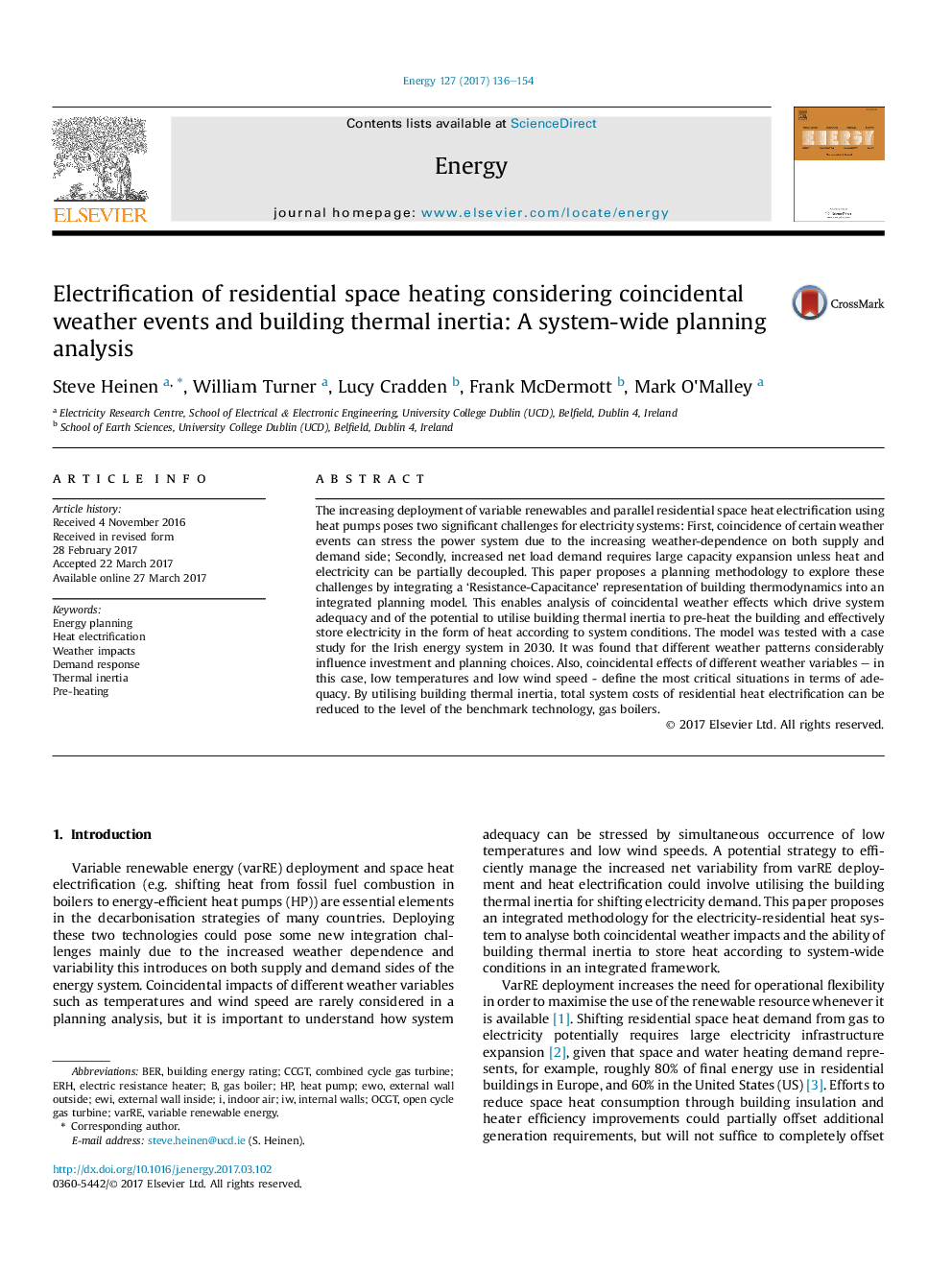ترجمه فارسی عنوان مقاله
الکتریسیته شدن در محیط های مسکونی به دلیل وقوع حوادث حادثه ای و ایجاد نفوذ حرارتی: تجزیه و تحلیل برنامه ریزی در سطح وسیع
عنوان انگلیسی
Electrification of residential space heating considering coincidental weather events and building thermal inertia: A system-wide planning analysis
| کد مقاله | سال انتشار | تعداد صفحات مقاله انگلیسی |
|---|---|---|
| 150036 | 2017 | 19 صفحه PDF |
منبع

Publisher : Elsevier - Science Direct (الزویر - ساینس دایرکت)
Journal : Energy, Volume 127, 15 May 2017, Pages 136-154

